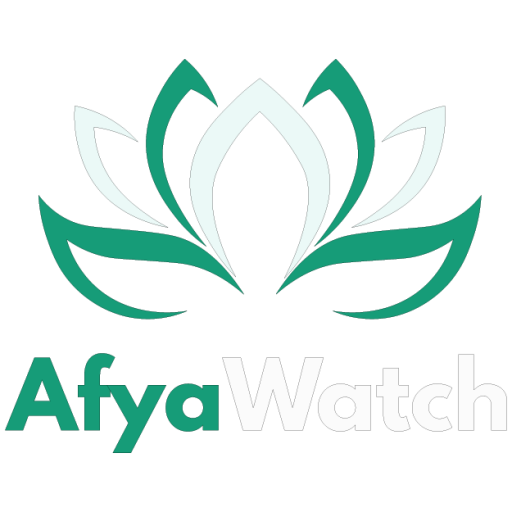The launch of the highly publicized human papillomavirus (HPV) vaccine finally came after months of uncertainty and postponements.
Kenya is now the 11th African country to introduce the vaccine Tanzania, Uganda, Ethiopia, Senegal, Zimbabwe, Seychelles, Botswana, Rwanda, Malawi and Zambia.
According to Cabinet Secretary for Health Sicily Kariuki, this is a necessary step towards taming the torment of cervical cancer.
“Cervical cancer is the leading cause of female cancer deaths in Kenya. Working with partners like Gavi, UNICEF and WHO to introduce the HPV vaccine into our routine immunisation programme is an important step forward in ensuring the health and long-term prosperity of the Kenyan people.”
Cervical cancer among all the cancers that befall man, is preventable. Yet each day in Kenya, 9 women will die from a disease that could have easily been prevented.
The hope now is that this bold move to own the prevention process is going to succeed and end the suffering and deaths. The fact that East Africa bears the biggest burden of cervical cancer in the world means there cannot be any gaps in tackling it. HPV is Kenya’s number one cause of cancer in women between the ages of 14 and 55, with about 5,250 new cases diagnosed annually.
Dr Seth Berkley, CEO of Gavi, the Vaccine Alliance. “Mothers, grandmothers, daughters, wives – too many women’s lives in the poorest countries are cut short by the scourge of cervical cancer, and the greatest tragedy is that the vast majority of cases are entirely preventable via routine immunisation with the HPV vaccine.”
According to the CS, the vaccine will be offered nationally alongside other routine infant vaccines through an existing network of over 9000 public, private, faith-based and NGO health facilities free of charge. 800,000 girls under the age of 10 years will benefit from this initiative.
Vaccination cards will be given to those who will receive the vaccine.
What is The Controversy Around HPV?
The controversy depends on who you talk to. First of all, HPV is transmitted during genital skin-to-skin sexual contact. This vaccine is administered to children at the young age of 10 years going upwards.
The catholic church in Kenya has questions why such children would be given the vaccine even when they are not sexually active. The Kenya Catholic Doctors Association (KCDA) has been steadfast that at this age, advocating for abstinence is the best approach. The KCDA spokesman Kimotho Karanja is on record saying “HPV is a sexually transmitted infection and disease and, therefore, children who are chaste and faithful adults are not at risk.”
While this position has since shifted, the Catholic church has been firm that the government needs to be open about the side effects and how to manage them.
The vaccine does not contain mercury or thimerosal.
The other counter that has been used against the vaccine is that it is so lethal that Japan banned it. What has not been discussed in this argument are the events preceding this decision where pseudoscience won.
Studies done on the safety of the vaccine are numerous including this one that was done between 2006 to 2015 and published in the Pediatric Infectious Disease Journal.
Another study that involved about 1 million girls from Denmark and Sweden which you can read here BMJ study established that the allegations that the vaccine caused autoimmune, cardiovascular and even neurological effects were not factual.
What about all the other allegations of pain and other symptoms? One of the side effects attributed to the vaccine is that it causes CRP, a chronic pain syndrome affecting a limb, while POTS is a condition where the heart rate increases abnormally on sitting or standing up. Other symptoms attributed to the HPV Vaccine are; dizziness, fainting and weakness, as well as headache, aches and pains, nausea and fatigue.
This report did not rule out that these syndromes do occur and affect young and even older populations in general. The report concluded, ”The review found no evidence that the overall rates of these syndromes in vaccinated girls were different from expected rates in these age groups, even taking into account possible underreporting.”
Where has the HPV Vaccine Succeeded?
So far Australia is the one country that has recorded such impeccable success that it could soon be the first country to completely eliminate cervical cancer.
It did not just start to offer the vaccine, however. The journey began way back in 2007. It started offering the vaccine to girls aged between 12 and 13. In 2013, the vaccine was available to boys as well.
What To Know About Cervical Cancer
- Cervical cancer is the leading cause of cancer-related deaths among women in Kenya; killing 9 women daily.
- Nearly 99.7% of cervical cancers are caused by HPV infections; preventing HPV, therefore, protects you from cervical cancer later in life.
- HPV has been approved by the Kenya pharmacy and poisons board.
- Cervical Cancer is now Preventable through Vaccination
- The Cervical Cancer vaccine is safe and effective, has been evaluated and licensed for use in the country. It is in use in Routine Immunization Programs of more than 115 countries worldwide.







1 comment